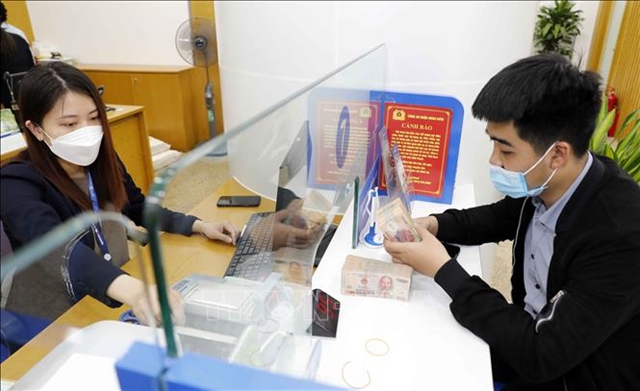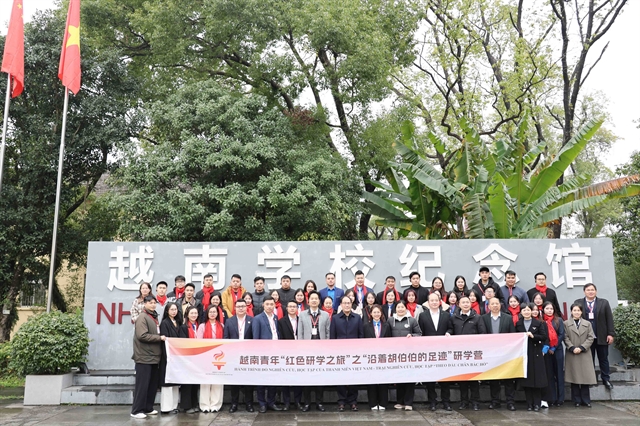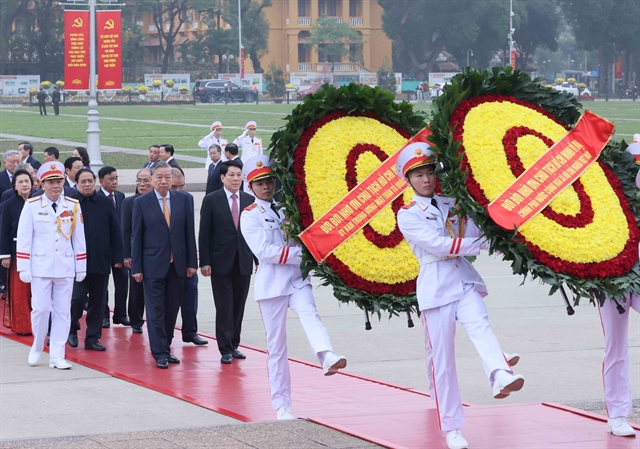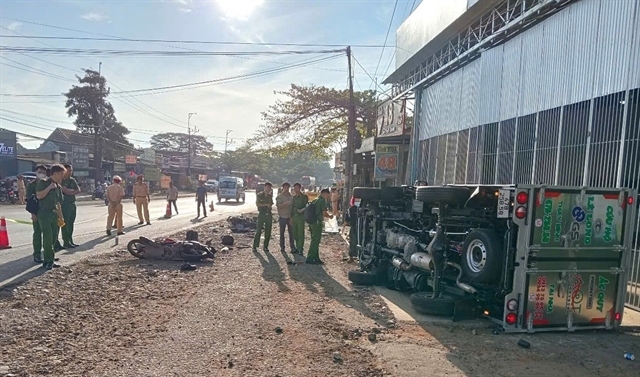 Economy
Economy

Fearing that start-up businesses could be harmed, a petition calling for the scrapping of Article 292 under Penal Code 2015 was sent to officials, ministers and agencies.
 |
| Article 292 recently stirred up controversy as it was stated that any services offered online or via telecommunication networks without prior permission would be deemed illegal. — Photo dantri.com.vn |
By Yến Vy
HÀ NỘI – Article 292 of the Penal Code adopted by the National Assembly last year recently stirred up controversy as it was stated that any services offered online or via telecommunication networks without prior permission would be deemed illegal.
The National Assembly issued a resolution to delay the implementation of Penal Code 2015, along with the Criminal Procedure Code, the Law on the Organisation of Criminal Investigation Agencies, and the Law on the Implementation of Custody and Temporary Detention on June 30.
The Penal Code No.100/2015/QH13, adopted by the National Assembly in November last year, was earlier set to take effect on July 1, 2016. But now the implementation of Article 292 under the Penal Code 2015 is also delayed.
The local start-up community expressed great concern over that particular article, for fear of going to jail, as most start-up businesses provide applications and services online.
Fearing that start-up businesses could be harmed, a petition calling for the scrapping of Article 292 under Penal Code 2015 was sent to officials, ministers and agencies.
The petition, also sent to National Assembly Chairwoman Nguyễn Thị Kim Ngân and Prime Minister Nguyễn Xuân Phúc, collected nearly 6,000 signatures after only one week by seeking support from the business community and individuals, who signed online or at six locations in Hà Nội and Hồ Chí Minh City.
"The Vietnamese start-up community could be the most harmed by the article, as computer and telecommunication networks remain a business tool for the majority of start-ups in Việt Nam in many fields, as well as being a common trend throughout the world," lawyer Trần Đức Hoàng from EZLaw Firm told Việt Nam News.
The vov.vn quoted Nguyễn Văn Luật, deputy head of the National Assembly’s Judicial Affairs Committee, on the controversial article, saying that there had only been an initial review of the Code.
The National Assembly’s Standing Committee was now ordering a review of the bill on the amendments and supplements to some articles of the Penal Code 2015, and it could be sure that Article 292 would also be analysed and discussed from many different angles before being reported to the National Assembly’s Standing Committee and the National Assembly.
“There will be an answer at the second meeting session of the 14th National Assembly,” he stated.
The Đầu tư chứng khoán (Securities Investment) quoted Nguyễn Thị Kim Thoa, director of the Department of Criminal and Administrative Law under the Ministry of Justice at a meeting last Thursday as saying that these regulations were to ensure businesses operate legally as the telecommunication network had a great influence on people and businesses.
“Unlicensed service providers on computer and telecommunication networks which generate profits from VNĐ200-500 million or revenue from VNĐ2-5 billion will be dealt with...These will be large-scale enterprises, not start-ups” Thoa said.
These regulations were needed to ensure a healthy business environment, she said.
"It is necessary to handle illegitimate businesses, while protecting legitimate ones. Software start-ups should not worry about Article 292,” the director said.
“Knowing about Article 292, I felt rather worried for Việt Nam’s younger generation, since the young people are full of zeal, especially those in start-ups. Article 292 would be like pouring water on that “fire”, which may put out the fire or make it weaker,” Nguyễn Đình Quỳnh, CEO of Sunfresh Co. Ltd., shared with Việt Nam News.
“My company specialises in website programming, and we also have many business projects and trade via the Internet. I know that much of the trade occurring on the Internet is not licensed. If the article comes into force, the number of online businesses will sharply decrease,” he added.
“The article will have an incredible impact on the online business community, especially on start-ups in the technology field,” said Nguyễn Bảo Long, Marketing Executive of UP Co-working Space.
“Working as a start-up requires innovation and creativity, as well as performing many tests of products and services. Therefore, if the legal conditions are too strict, it will prevent creativity and business activity, which could lead to the failure of many start-ups,” Long added.
“The start-up community wishes for a simplification in administrative procedures for start-ups in Việt Nam and Article 292 will be put into consideration for improvements so that it can be more flexible for start-ups in the IT field,” said Long.
Currently, Việt Nam has 267 conditional business areas. Article 292 criminalises the acts of conducting unlicensed business on the Internet, while not criminalising most similar acts of other conditional business activities, said Hoàng.
“This will make investors, businesses and the start-up community think that they are being discriminated against, and that the State limits services provided on the Internet,” he added.
Article 292, which includes a maximum fine of VNĐ5 billion or a prison sentence of up to five years, is too strict and might slow the development of service businesses on the Internet in particular, as well as the information and technology sector in the country overall, he said.
According to the lawyer, Article 292 will also cause Vietnamese start-up enterprises to hesitate before developing, leaving a fertile market for foreign Internet providers, which would make the future uncertain for Vietnamese technological development and negatively impact the country’s economic development. - VNS




